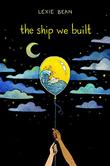For readers and writers weathering self- or government-imposed isolation, maybe it’s time to experiment with independent publishing, reconsider style or genre, push past procrastination, or collaborate in ways that ease feelings of isolation. Or maybe you just want to stop screaming at your kids to stop screaming.
 Independent publishing is in its heyday. An author can upload their book on two platforms, Kindle Direct Publishing and IngramSpark, for example, and not only distribute it globally, including to nearly every independent, online, and chain bookstore in the U.S., but do it for under $100. Writers—despite the collective temptations of the internet and the absence of external deadlines—self-pub about 1.7 million books annually; Kirkus reviews more than 4,000 of them.
Independent publishing is in its heyday. An author can upload their book on two platforms, Kindle Direct Publishing and IngramSpark, for example, and not only distribute it globally, including to nearly every independent, online, and chain bookstore in the U.S., but do it for under $100. Writers—despite the collective temptations of the internet and the absence of external deadlines—self-pub about 1.7 million books annually; Kirkus reviews more than 4,000 of them.
Indie publishing has a long list of venerables, like Henry David Thoreau, the subject of a recent column by contributing editor Gregory McNamee (“Thoreau had trouble getting publishers to bite”). Walt Whitman self-pubbed Leaves of Grass, which went through numerous post-publication revisions—a practice that, to this day, is a big benefit of self-publishing. That iconoclastic spirit still fuels indie publishing.
 There are no gatekeepers in Indieland. Writers can publish their work on their own timeline and control the entire process—from content to cover to marketing. For Kirkus' inaugural Indie Issue, we talked with several indie writers. Some didn’t want to wait the years it can take to go from finding an agent to final product; others realized that if they wanted to be represented in print, they’d have to do it themselves.
There are no gatekeepers in Indieland. Writers can publish their work on their own timeline and control the entire process—from content to cover to marketing. For Kirkus' inaugural Indie Issue, we talked with several indie writers. Some didn’t want to wait the years it can take to go from finding an agent to final product; others realized that if they wanted to be represented in print, they’d have to do it themselves.
Rosilyn Seay, author of the starred picture book The Girl Who Loved Pots, knew that “she had some stories to tell, stories that might have too limited a market appeal for traditional publishers.” She wrote a charmer about an African American girl who transforms everyday items. After a lot of research, Seay realized if she wanted to retain “absolute creative and artistic control,” she’d need to do everything—“write, illustrate, obtain an ISBN, copyright, obtain a Library of Congress number, and find a distributor”—herself.
Meenal Patel wrote Priya Dreams of Marigolds Masala because it’s “critical for kids to be exposed to experiences they can relate to AND experiences that open their eyes to ones that are different from their own.” Her starred picture book is a stunner; behold its saffron, pink, and green cover!
 Queer and trans author Lexie Bean has both traditionally and self-pubbed their work. Their upcoming starred middle-grade book, The Ship We Built, with a transgender lead, will be published by Dial Books in May. “Self-publishing…gave me the foundation and reminder that at the end of the day it is still my story,” says Bean. “This is especially important to queer and trans people, as well as any ‘minority group’; we have to know that we don’t have to rejigger our truths in order for it to be worth the time and resources for it to get made. We take the risks before anybody else because we already know that existing comes with risk.”
Queer and trans author Lexie Bean has both traditionally and self-pubbed their work. Their upcoming starred middle-grade book, The Ship We Built, with a transgender lead, will be published by Dial Books in May. “Self-publishing…gave me the foundation and reminder that at the end of the day it is still my story,” says Bean. “This is especially important to queer and trans people, as well as any ‘minority group’; we have to know that we don’t have to rejigger our truths in order for it to be worth the time and resources for it to get made. We take the risks before anybody else because we already know that existing comes with risk.”
Cheers to the creative risk takers, happy reading, and take care.
Karen Schechner is the vice president of Kirkus Indie.



































